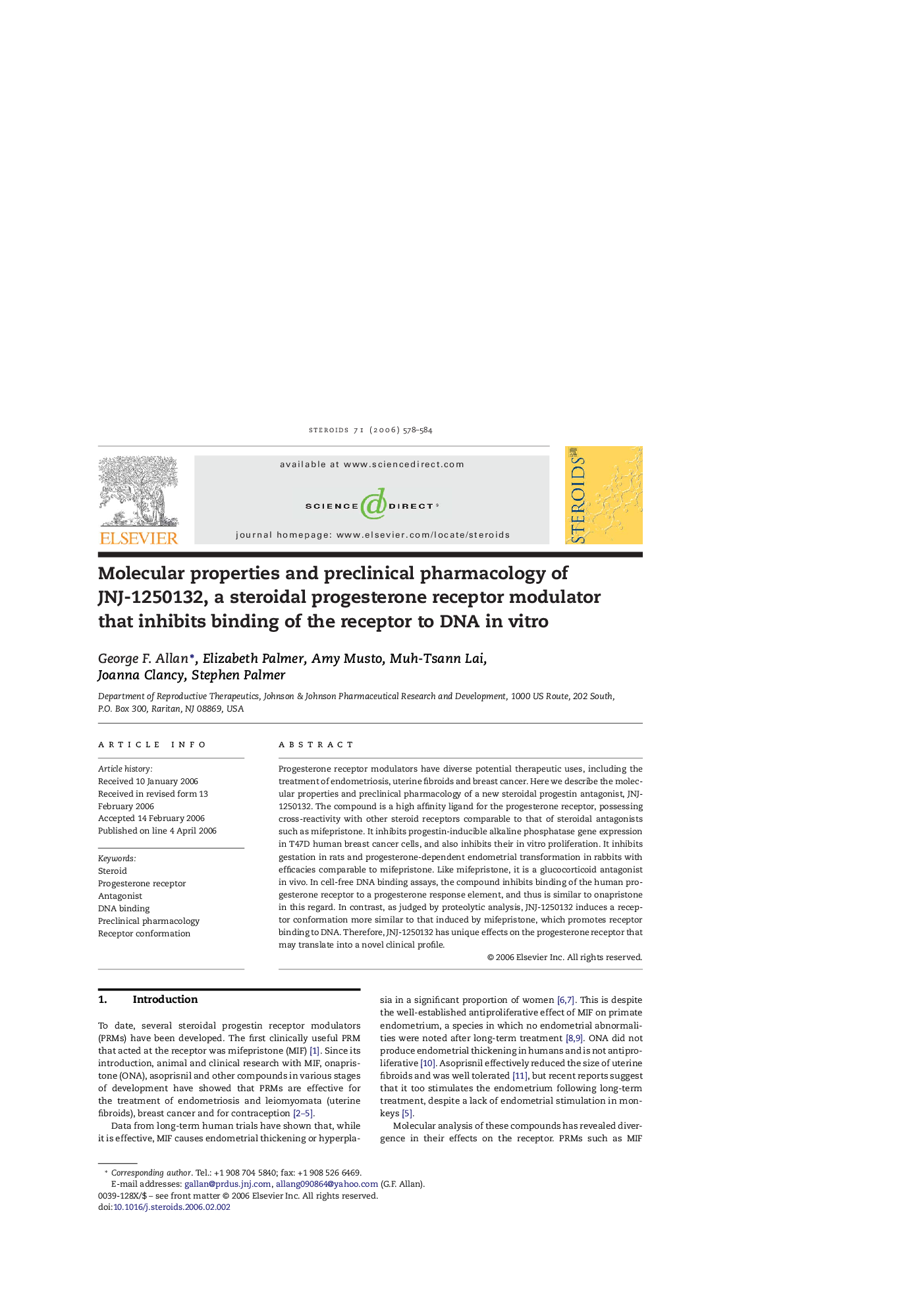| Article ID | Journal | Published Year | Pages | File Type |
|---|---|---|---|---|
| 2029002 | Steroids | 2006 | 7 Pages |
Abstract
Progesterone receptor modulators have diverse potential therapeutic uses, including the treatment of endometriosis, uterine fibroids and breast cancer. Here we describe the molecular properties and preclinical pharmacology of a new steroidal progestin antagonist, JNJ-1250132. The compound is a high affinity ligand for the progesterone receptor, possessing cross-reactivity with other steroid receptors comparable to that of steroidal antagonists such as mifepristone. It inhibits progestin-inducible alkaline phosphatase gene expression in T47D human breast cancer cells, and also inhibits their in vitro proliferation. It inhibits gestation in rats and progesterone-dependent endometrial transformation in rabbits with efficacies comparable to mifepristone. Like mifepristone, it is a glucocorticoid antagonist in vivo. In cell-free DNA binding assays, the compound inhibits binding of the human progesterone receptor to a progesterone response element, and thus is similar to onapristone in this regard. In contrast, as judged by proteolytic analysis, JNJ-1250132 induces a receptor conformation more similar to that induced by mifepristone, which promotes receptor binding to DNA. Therefore, JNJ-1250132 has unique effects on the progesterone receptor that may translate into a novel clinical profile.
Keywords
Related Topics
Life Sciences
Biochemistry, Genetics and Molecular Biology
Biochemistry
Authors
George F. Allan, Elizabeth Palmer, Amy Musto, Muh-Tsann Lai, Joanna Clancy, Stephen Palmer,
